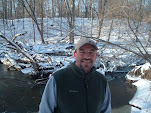"I don't know whether your heart ever necessarily changes, but time changes the way that you perceive the world. And you just hope it gives you more empathy and all those other things." -- Mark Knopfler
"Why are you so nice to me?"
This is the question that our 5-year-old granddaughter posed to her Grandmother recently. For some reason, after my wife told me this, the inquiry hit me at a profound level, and I wondered to myself what it was that she was really asking? Was she trying to determine her place in the scheme of existence? Did she have some need to determine why this adult would patiently sit next to her, and read, and just express a caring and loving attitude to her? Is she measuring her worth in some way?
I know that I probably shouldn't jump right to all the existential issues of a simple question, but I can't seem to help myself. It is the inner anthropologist, sociologist, and psychologist in me.
Yet, hearing of this gentle child's probing question, this desire at measuring another's perspectives felt like the wrong approach to me, until I considered that this little one was just expressing--or displaying--beginning empathy, or at least trying to understand her world through empathetic eyes and heart. She was stretching her imaginations beyond herself, taking in another's thoughts and identifying with a perceived emotion, in this case, my wife's expression of "nice" to her. These are two of the core habits of empathy, in my opinion, processing another's thoughts and then identifying (yet not sympathizing) with them.
This little one was drawing on assorted elements of her brief existence, those of inborn aptitude, social experience, personal history, patience and motivation in order to understand the people of her world, as well as how those people perceive of her.
I believe the exploration our granddaughter is starting, will lead to a balance in her need to successfully relate to others. And I would like to hope that this can be a small yet significant step in giving our children's children a chance at achieving what can only be accomplished through validation of genuine caring.









